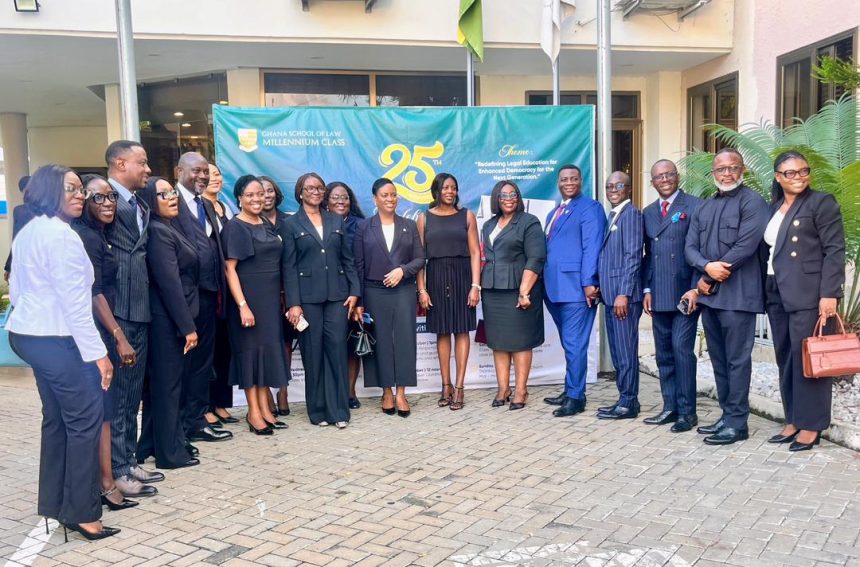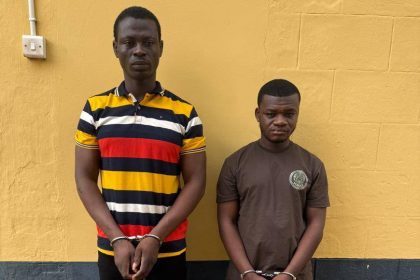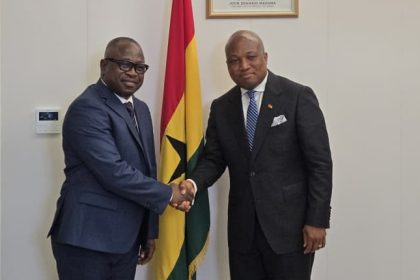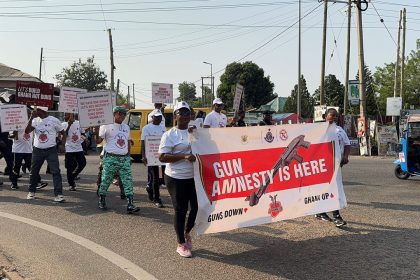Justice Ernest Yao Gaewu, a Supreme Court Judge, has called for a comprehensive redefinition of legal education in Ghana, arguing that the current model is inadequate for preparing lawyers to meet contemporary democratic challenges and protection of constitutional governance.
Justice Gaewu said this during the launch of the 25th Anniversary celebration of the Ghana School of Law Millennium Class of 2000 on Monday, where he spoke on the theme: “Redefining Legal Education for Enhanced Democracy for the Next Generation.”
He stated that across the world, democratic norms were eroding with judicial independence under threat, largely because of disinformation and misinformation in public discourse, and subordination of the rule of law to political expediency.
The current model of legal education in Ghana was not fully equipping the next generation to meet those challenges because it was centred on technical proficiency; case law, statutes, and procedural rules, Justice Gaewu noted.
“These are vital but not sufficient. To redefine legal education for the future, we need lawyers who are not only legal technicians but also civic leaders, critical thinkers, ethical actors, and empathetic advocates,” he said.
“In this landscape, the role of the legal profession is not merely to interpret laws. It is to safeguard democratic institutions, amplify marginalised voices, and uphold justice in its most inclusive sense.”
The Supreme Court Justicechallenged legal educators and practitioners to fundamentally reconsider the purpose of legal training by asking: “What kind of lawyers does democracy need today?”
He provided four pillars for reformed legal education – democratic literacy, access to justice and public interest law, interdisciplinary approaches, and ethical and moral reasoning.
“Law schools must teach students the foundational principles of democratic governance, not just in constitutional law classes but across the curriculum… Students must understand how laws shape and are shaped by social power and political structures,” he explained.
Justice Gaewu called for clinics, legal aid projects, and pro bono work to be embedded in the curriculum not as electives but as core experiences, noting that their relevance in enhancing access to justice delivery could not be overstated.
Regarding interdisciplinary approaches, he said: “Tomorrow’s legal minds must be fluent in economics, political science, technology, environmental science, and history, because the problems they will face – AI and privacy, climate change justice, global inequality – do not respect disciplinary boundaries.”
Justice Gaewu also encouraged Ethical and Moral Reasoning in the legal fraternity, urging practitioners to cultivate knowledge but wisdom and make legal education elevate character and integrity as much as it does intellect.
“Democracy is not self-sustaining. It relies on guardians – on those who understand the law, who believe in justice, and who are brave and fearless enough to act when others remain silent. Legal education is the seedbed where such guardians are grown,” he stated.
Ms Isabel Boaten, President, Greater Accra Bar Endorses, a member of the Millennium Class, noted that the voices of lawyers were most important at a time where democratic development was being pursued.
She said legal education must recognise Ghana as part of a near-trillion-dollar global industry, spinning on the axis of a multipolar world, with technology and AI in a spiral, enhancing the global competition.
“As lawyers in academia, the bench, private practise, as corporate counsel, we have the privilege to be part of the connected thinking… and can contribute meaningfully to the redefinition of legal education in Ghana,” Ms Boaten said.
GNA






